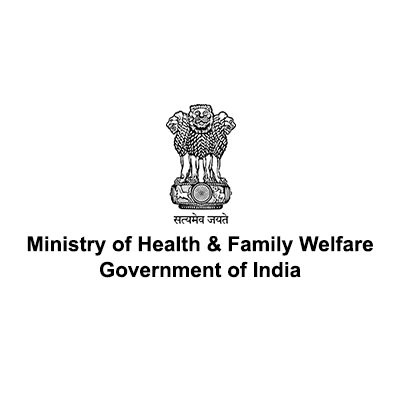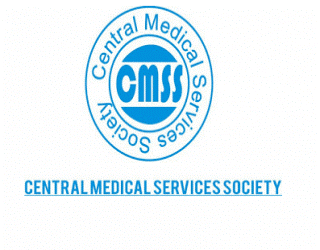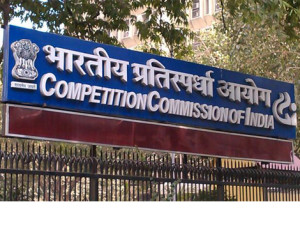CCI dismisses complaint of Cupid against Ministry of Health & Family Care and the Central Procurement Agency in purchase of male condoms in India


The Competition Commission of India (“CCI/Commission”) vide order dated 26.12.2018 under Section 26(2) of the Competition Act,2002 (“the Act”) , has dismissed allegations of abuse of dominance as well as exclusive supply/refusal to deal agreements against Ministry of Health & Family Care, Government of India (“OP1/Ministry of Health”) and its Central Procurement Agency , the Central Medical Services Society (“OP 2/CMSS”) in the market for bulk purchase of male condoms under the Family Planning scheme of the Government of India.
The allegations arose from the alleged unfair and discriminatory clauses contained in the Long-Term Agreement (“LTA”) signed between Cupid Limited (“Cupid/informant”) and CMSS post a tender issued in August 2016 for procurement of condoms under a rate contract. Cupid was declared as the lowest bidder but due to delay in finalizing the contract , the bid was accepted in September 2017.
BACKGROUND AND ALLEGATIONS
The informant/Cupid is a public listed company which is engaged in the business of manufacturing and supplying condoms and lubricating jelly, and has been supplying condoms to the Ministry of Health since 2002. Till 2013-14, the ministry of health used to procure condoms through tenders and ,thereafter, distribute it to various organizations in India at a subsidized rate or free of cost, which in turn was distributed to the general public.
However, since 2014-15 the Ministry of Health entrusted its procurement functions to CMSS which is the Central Procurement Agency for drug procurement and distribution under the Ministry of Health . It operates independently for procurement of quality health sector goods and services required by the Ministry of Health and sends the goods so procured at convenient locations for the benefit of users.
Cupid participated in one such tender[1] floated by CMSS for procurement of condoms which was opened on 3.08.2016 and with the lowest bid, Cupid was declared as the L1 bidder. As per the allegations of the informant, CMSS had abused its dominant position and forced the informant and other manufacturers to sign the Long term Agreement, which was discriminatory, biased and lopsided in favour of CMSS.
Certain clauses which were specifically mentioned/targeted by the informant were:
- Clause 8- delivery of the product is to be completed within a short period of 60 days from the date of purchase.
- Clause 20- in case of delay of supplies within time, liquidated damages at the rate of 0.5% per week and upto a maximum of 10% can be levied, irrespective of the fact that CMSS suffered any damage/loss or not. On the contrary, there is no penalty on CMSS for delay in payment.
- CMSS can cancel the entire contract without any show cause notice and force the supplier to pay for any loss by way of expenditure or other incidental expenses. No corresponding penal provision for CMSS if it fails to place an order for the accepted quantity.
- Clause 8.1- CMSS can increase/decrease the procurement quantity during the tenure of the LTA, which creates uncertainty for the suppliers.
- Clause 10.3- Debarment on sub-contracting the manufacturing of the product.
Moreover, allegations of exclusive supply agreement and refusal to deal were imposed by placing reliance on Clause 9, 10 and 11 which mandated extensive packaging requirements and imposed varied printing requirements such as printing of the identification mark/code on the product, printing of text-Central Government Supply-not for sale on the strips, packs, blisters, vials, ampoules and bottles and also on the external packing. According to Cupid, these clauses ensured that the product cannot be sold to any customer other than CMSS.
CCI ANALYSIS UNDER SECTION 26(1)
The Commission commenced its analysis by acknowledging that Government’s policy for population control aims to distribute condoms free of cost to the poor and at subsidized price to less well-off segments, as a result of which the market of contraceptives in India comprises of three markets , namely , the free supply market, the social market at subsidized rates and the commercial market.
Whether the OPs are Enterprises under the Act ?
The Commission before progressing to the merits of the case, ascertained whether the Ministry of Health and CMSS fall within the purview of the Act i.e. whether they are enterprises under Section 2(h) of the Act.
As regards the Ministry of Health, the Commission observed that it is a Ministry of the Government of India which is inter alia engaged in the formulation of guidelines, regulations and policies and for those matters are incidental and ancillary to the health and public welfare sector in India, and these activities could not be said to be ‘commercial’ in nature. Therefore, it was decided that the OP-1/Ministry of Health does not fall within the purview of the Act, not being an enterprise.
However, the Commission observed that CMSS is involved in various economic/commercial functions such as tendering, bid evaluation, procurement, placing purchase order, distribution etc. and, therefore, it falls under the purview of the Act, being an enterprise based on the functions discharged.
Whether any Abuse of Dominance by CMSS ?
CCI observed that CMSS is a procurer of condoms, which ,thereafter, distributes the product to the public under the Government’s policy for population control, and therefore, it is on the demand side and the manufacturers are on the supply side; thereby making it a case of alleged abuse of buyer’s power.
The Commission noted that it had previously dealt with similar cases[2] involving buyer’s power in which it delineated the relevant market by applying the concept of ‘demand side substitutability’ inversely i.e. by assessing the availability of substitutes for suppliers and their ability to switch to alternative sales opportunities both in terms of products as well as geographies. By applying the aforesaid principle, the CCI came to a finding that the suppliers of the product- ‘male condoms’ have the option to supply their product either to the Government under its free supply/ social marketing programme or in the commercial market anywhere in India or even export the product. Therefore, the relevant market was determined as market for male condoms in India.
While assessing the dominance of CMSS, CCI considered the details provided by the informant/Cupid which stated that the condom market in India was worth Rs 800 Crore and on ignoring the sale of female condoms, the calculated market share of CMSS was 23.91% in 2016-17 and 36.38% in 2017-18. The CCI noted that the market shares calculated by the informant were based on several assumption and may not depict the actual position, however, even if these market shares were accepted, it would not establish dominance in the relevant market. CCI observed that, though the calculated market shares show that CMSS is the largest procurer, the supplier would not be foreclosed from the market if it does not procure from them, as the suppliers have the option to sell in the commercial market, which as per the informant’s own calculation, constitutes 65%-75% of the relevant market. Moreover, CMSS was procuring for social objectives and it did not appear to have any incentive to influence the relevant market. Thus, in absence of the ability or the incentive to affect the relevant market in its favour, CMSS could not be considered dominant in the market for male condoms in India; and in absence of dominance there cannot be abuse of dominance under section 4 of the Act.
Whether CMSS indulged in Exclusive Supply & Refusal to Deal ?
The Commission observed that the printing and packaging requirements, which were alleged to be in violation of Section 3 (Anti-Competitive Agreements), were only in respect of the product that is to be supplied to CMSS. The Conditions of the LTA neither restricted the informant from dealing in goods other than those of CMSS nor did it impose any restriction on selling its good to any buyer other than CMSS. Therefore, the CCI concluded that the allegation of exclusive supply and refusal to deal under section 3(4) (b) and 3(4) ( d) of the Act are misplaced and dismissed the allegations.
Accordingly, CCI has not find any prima facie case for directing investigation by the Director General (DG) under section 26(1) of the Act and has closed the case . The Informant /Cupid can ,however, challenge this finding by filing an appeal before the National Company Law Appellate Tribunal (NCLAT).
COMMENT: This is the first order issued by CCI under the new Chairman . Though the Commission accepted that CMSS is the largest procurer of condoms in India, yet it has not found it to be dominant. The jury is out in case Cupid challenges it in appeal before NCLAT.
[1] CMSS/PROC/FWP/2016-17/002 issued on 02.08.2016
[2] Case No. 70/2014
Case No. 16/2013
Case No. 80/2015







